Where the Wild Roses Grow
In remembrance of a woman who mothered a whole generation of strays
Recently, I attended the funeral of my dear friend’s mother, Brenda Boozer. My friend Todd is more than a friend; he’s soul family. Brenda was, too.
Another member of my soul family,
helps me search for better language for many things, most recently the word tribe. Tamar is Indigenous and often reminds me that language carries responsibility, that we can name a feeling without borrowing what isn’t ours. She helps me know that it’s worth searching for words that don’t break into a house just to steal a gift for another neighbor.The word tribe denotes deep relation, daily care, and generational reciprocity. But most of us, caught in the modern pulse of individualism, only show up for each other in times of crisis and loss.
I’m one of those people.
I’m often too busy to check in until the world stops.
At Brenda’s funeral, I had just settled into the pew when her daughter-in-law, Jeanne-Marie, asked if I would be willing to deliver the eulogy. The person originally scheduled hadn’t yet arrived.
Two things crossed my mind at once:
- What an incredible honor to be asked.
- And, how could I possibly do Brenda’s life justice in notes?
I started furiously typing fragments into my phone — mentor, second mom, lost daughter in a car accident, loved fiercely despite and because of her grief. But there wasn’t enough time to condense my interactions with Brenda into a brief semblance of meaning, I needed some time to do her life justice.
Luckily, the brilliant woman who had been asked to speak found the church just in time. The service began. But my mind kept listing details and the writing kept on in my head as the music and remembrances during the service moved me.
It's rare to attend a service in the American South that doesn't feel like a sales pitch. Brenda's was orchestrated with truth and kindness and a depth of feeling that left me buzzing with the beauty of what life can be — what it is, despite the pain.
So, I decided to write that eulogy anyway and put it here instead.
Before I met Brenda, I knew her by her car — a sexy little RX-7 that her son, Leland Todd Boozer, drove the first night I ever snuck out of my father’s house to go to a party.
My date that night was Jennifer Walker — my eternal Scorpio sister, my best woman at my wedding, and most recently, the defiant figure standing her ground in an Atlanta Tesla protest.
The night of the party was filled with firsts for me: vodka shots, freedom, drinking games, and more freedom (did I mention that part?).
Somewhere in the blur, Jennifer got sick. I was thirteen, just a few weeks into public high school after a childhood in a fundamentalist Christian school. Resourceful but very much in over my head, I didn’t know how to get us both home without anyone finding out that we were missing.
Todd came to my rescue in his mom's fancy car and by the time he dropped me off in my driveway, we were forever friends.
Not long after, I was arrested — a situation that was less for what I’d done and more for who I was with (it wasn’t Todd). My father, devastated, picked me up from the police station with tears in his eyes. I was sentenced to solitary confinement in my own house. But once again, Todd came to the rescue, still in Brenda’s car. He was my lifeline. A safety net. My big brother.
Todd introduced me to music, a giant world of music, tones that formed the soundtracks of my stories and dreams. He gave me music to write by, like a gifted composer scoring the scenes. Todd made me believe that anything I dreamed could be created with music and words.
Through him, I met Brenda.
When I finally had my license (and some freedom), I began stopping by the Boozer house between mornings at my high school and my writing classes at the Fine Arts Center. Brenda wasn’t always home, but I came to know her through the space she created: her carpet, and framed photos, and cats. The house she and Don built smelled like home. It was home — the kind of home you carry in your body forever.
The tree-drenched road that led to art school passed through Brenda’s world. That road still feels like part of her.
I was always welcomed. Never judged. Never turned away.
Those truths are all a human needs to feel like they are part of a community — part of a soul family, filled with people we've chosen and have chosen us back.
It's those kinds of threads that make me feel like we've known each other before we came down to this earth.
I went away to college, but not far.
In the winter of my freshman year, Tara Boozer — Todd’s sister and Brenda and Don’s youngest daughter — was in a car accident, driving home from a ceremony honoring her work as a visual artist.
Without social media or any organized network for distributing information, word spread by phone call. The hospital filled with family, classmates, neighbors, and friends-of-friends who had been folded into Brenda and Don’s world. It became a vigil for Tara’s life.
When we learned Tara would not survive, that vigil became something else — a vigil for her soul — and a mission that Brenda would carry for more than thirty years until she was reunited with her daughter on the other side.
I still remember slipping into the hospital chapel after Tara’s passing. I had grown up in churches, but it was there, in the rawness of communal grief, that I first understood what prayer was — how it reaches beyond us, how it holds us in place. And how it does this, despite my deeply fundamentalist upbringing, not through performance or doctrine, but by presence and love — reaching out past the edge of what we can understand.
The prayer I uttered that day was the opposite of fire and brimstone. It was a prayer of love and one that would see me through so much that followed.
As I was writing this, I asked Christopher how long that vigil lasted. I couldn’t remember. In my mind, it was both a blink and an eternity. He said, “A week? Maybe. I just remember there was hope, and then despair. But the thing that sticks with me is that so many people didn’t lose their faith. If anything, it got stronger. Because we knew where she was headed. And now she’s there — with her mom.”
When Tara passed, the phrase it takes a village stopped being theoretical.
Brenda could have shut the doors. She could have turned inward. She could have disappeared.
But she didn’t.
She loved harder.
She took in all of us — the ones who loved her son and daughter, the misfits and the wanderers and the artists — and she made room.
She and Don parented us through our heartbreaks. They met us where we were. Brenda didn’t shy away from grief. She wore it like armor and an invitation. She taught us how to live honestly with pain, how to mother beyond biology, and how to accept the whole person, not just the parts that are easy to love.
Not too long after Tara's passing, I drove the road where her accident happened to attend a writer's conference at the same university where Tara was honored for her art.
The South has a thing for crossroads, the legends that form at the intersection of two paths. I wrote a piece for the cover of a local paper about roadside memorials and the traditions that push us to tend and mark the spots of world-changing tragedy.
Tara's landmark was a fork in the road — which is as symbolic as a crossroads. Her legacy is still tended in the lives of those who loved her like a gothic garden with its old scars and stories and beauty and vines, the dark symbols that bring us back to our shared humanity.
Brenda was a wild rose in that garden.
I stood at the place where Tara left this world and felt her move through the grass, the wisteria, the kudzu, and the trees.
The land remembers.
As Flannery O'Connor, the queen of the gothic South wrote, “What people don't realize is how much religion costs. They think faith is a big electric blanket, when of course it is the cross. It is much harder to believe than not to believe. If you feel you can't believe, you must at least do this: keep an open mind. Keep it open toward faith, keep wanting it, keep asking for it, and leave the rest to God.”
In the way that most value isn't recognized in the moment, there is medicine in writing this remembrance days after Brenda's funeral.
I need to make amends.
During my senior year in college, I started dating Brenda's son and soon after, Todd and I became engaged. I wore Brenda's ring on my finger and she and I spent hours and hours talking.
I didn't realize how much I needed a mother to speak to. I only see that now. I lived like an open wound in my 20s and I blamed everyone for my dissatisfaction and pain. Brenda took that pain and saw her own and also witnessed the seed in me that was becoming the person I could be.
She saw the person I am now.
As I planned to travel to Russia soon after the fall of the Berlin Wall, Brenda gloried in telling me the plot of Doctor Zhivago. She gave me a music box that played Lara's Theme.
I still have that music box, all inlaid wood, and flowers, cerulean blue and smooth like the sky and the water and our dreams. I found an old cross in it as I wrote this piece and I put it around my neck.
I hadn't lived enough at the time to understand the parallel themes of Doctor Zhivago and Brenda's life, how she endured her own internal revolutions, grief, and heartbreak, and yet she chose to keep showing up, to love more. She didn't shut down, not in the ways that mattered. She mothered beyond biology, and that love lives on in her wide, extended family of people who she touched.
She was not an easy person, but neither am I.
Neither are you.
Neither are any of us.
Like Lara in Doctor Zhivago, Brenda survived the unimaginable and kept going. Like Yuri in the story, she found poetry in the rubble.
When I listen to Lara's Theme now, I see how important it is to believe in love and survival.
I see how memory can become a sanctuary.
Brenda loved cats.
When I returned from Russia, I adopted a little Abyssinian kitten named Ivan. Not long after, Todd and I were off to Ireland for a month for me to study, and Brenda kept Ivan for us as a blizzard slammed into the eastern seaboard.
Brenda walked Ivan through the snow drifts on her shoulder so his little paws wouldn’t get cold.
The Boozer house was always filled with cats. It still is.
I asked Don if he liked cats before Brenda. He said, “Absolutely not. But Brenda made it clear I could be with her, and her cat, or hit the road.”
He met the cat. And fell in love with both.
Don told me the cats mourned when Brenda passed. And how Tara’s cat did the same when she died.
“I have no doubt Tara and Brenda are together in heaven now,” he said. “Unless now that they’re reunited, God has kicked them out for all the trouble they’re causing.”
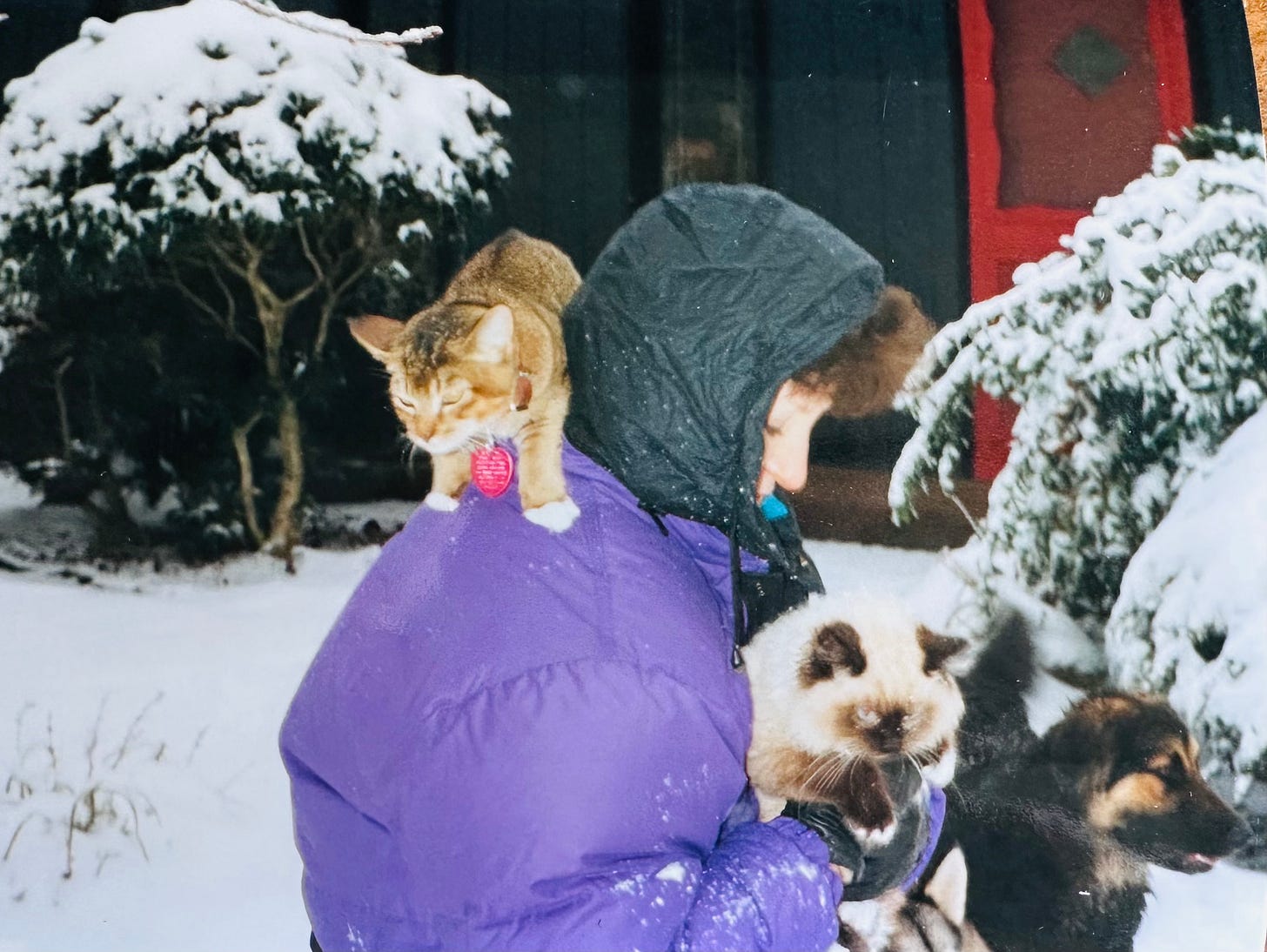
As the long procession of cars made its way from the church to the graveside for Brenda's funeral, I thought about how I drove the same roads when Tara passed all those years ago.
I realized how much time had passed and how things had changed, but I saw how there was still a timelessness — a time out of time. In this stillness, the old forests and fields and wildflowers of this land witness our comings and goings, our rejections and our becomings.
The spirit of this land holds us, like Brenda's beloved flowers and gardens.
When someone has a familiarity with the trees and the land, they know how to connect on a heart level with other humans. Not on the surface (we can all do that meager work) but how to seek out the depths and name them.
I'm not proud of the way I abruptly walked away from the Boozer family when I left their son and my promises a long time ago. In my leaving, Brenda lost an idea of another daughter, when in truth and time, the only person who could ever have filled that role is the beautiful, luminous Jeanne-Marie. I can only imagine how proud Brenda was to be close to Jeanne-Marie in the time before she passed.
I knew that my leaving was necessary and that I had a long, hard road to travel alone. I needed to gain some understanding of myself, to quit running away when things got hard, to figure out the meaning of love instead of the illusion of it that kept me chasing new landscapes in the hope of finding home.
But as we all sit together because of Brenda's passing, as we reconnect and hold each other gently because of her example — I can finally put into words what home means to me.
I have home with Christopher, who Don and Brenda loved as deeply as a son. I have home with Todd and Jeanne-Marie, who love each other. I have a home in our shared histories and forgiveness, how we all never gave up on each other. I have home with the plants and the forests.
And as Brenda and Tara are reunited in that place on the other side of our limited understanding on this earth — our true home — I know that love is the only power that walks us through the hills and fields, the sunrises and sunsets, the goings and the comings.
And in that love, we all find our homes.
Deepest peace to you, Brenda.
Your roots run deep, and we are still blooming in your name.
Love,
Kim




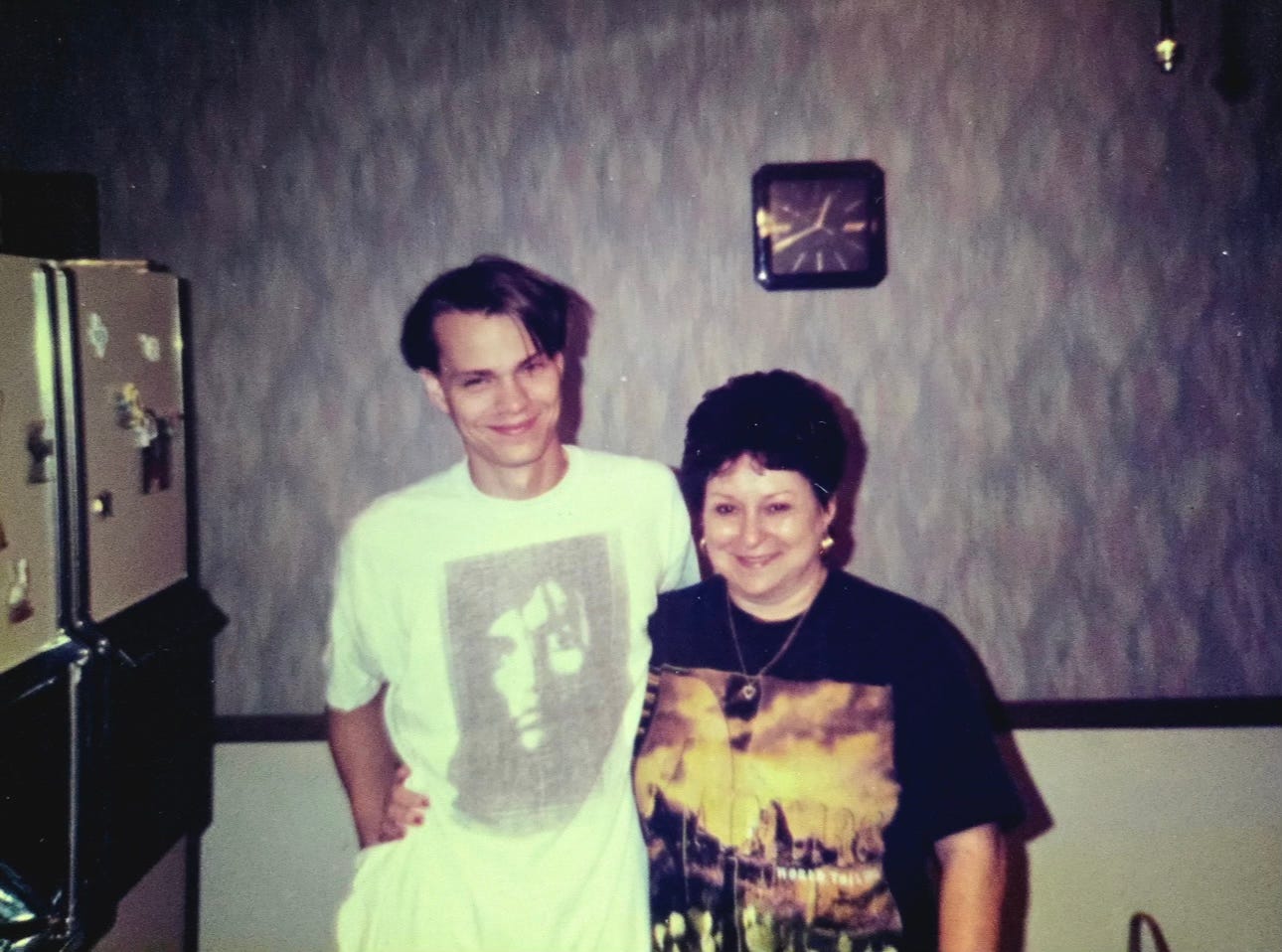
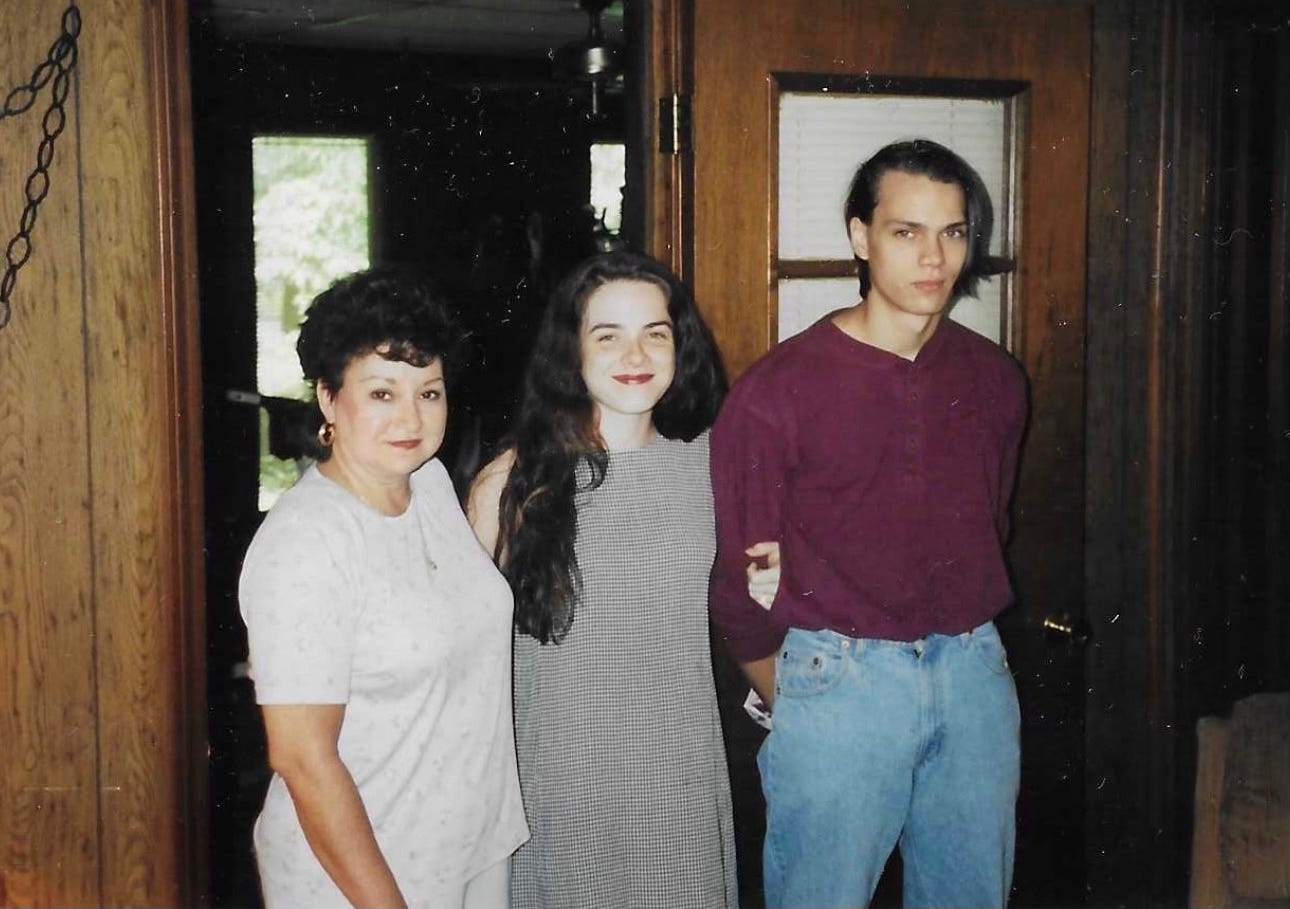
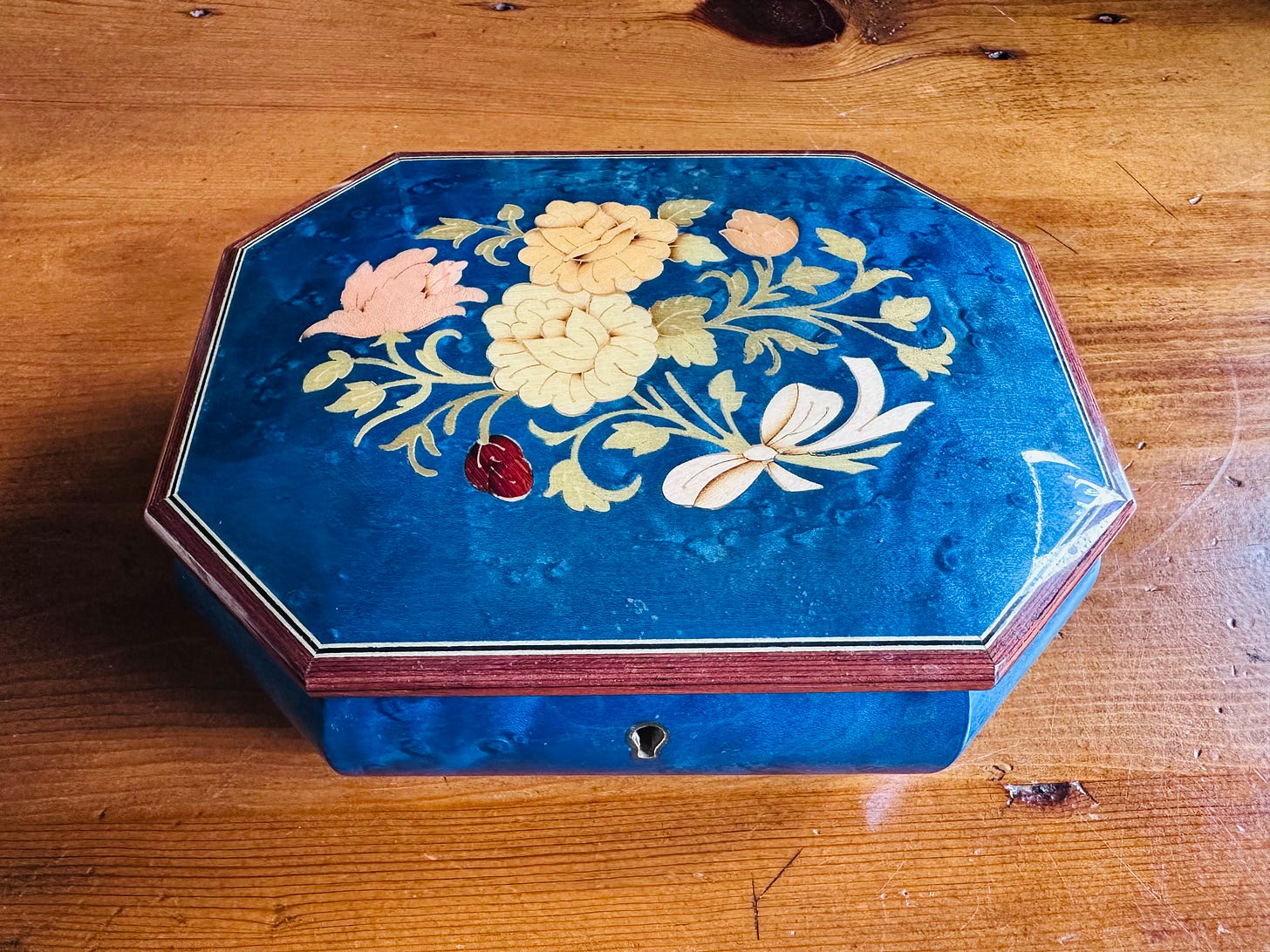
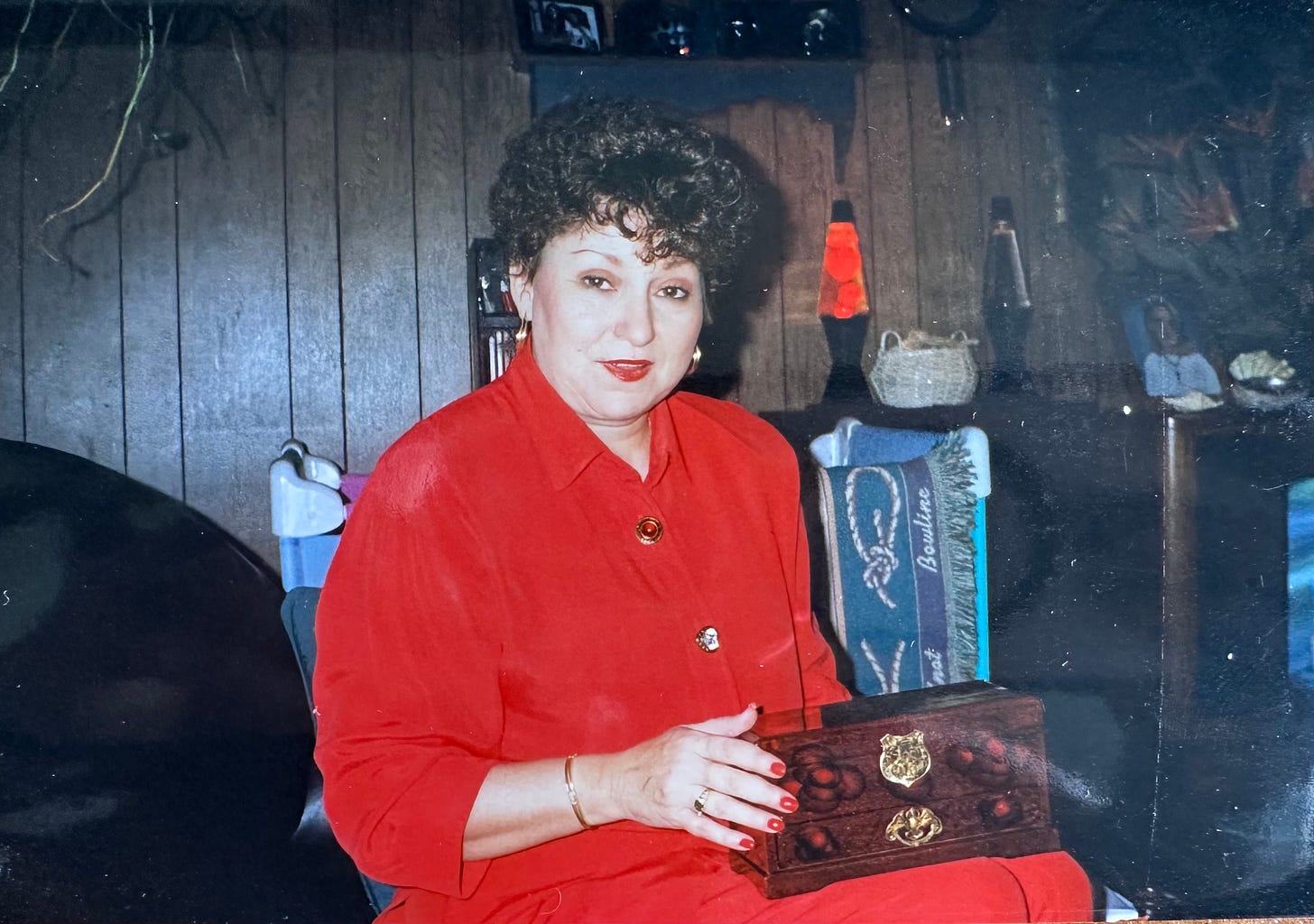
A beautiful tribute to the family we find and that finds us.
What a beautiful honor of love you have bestowed upon her life and all connected to her in family. My mantra in difficult times with myself, with others, with life, is “ladle on the love”. The elixir to life. I love Brenda and her cats! ❤️🐈❤️